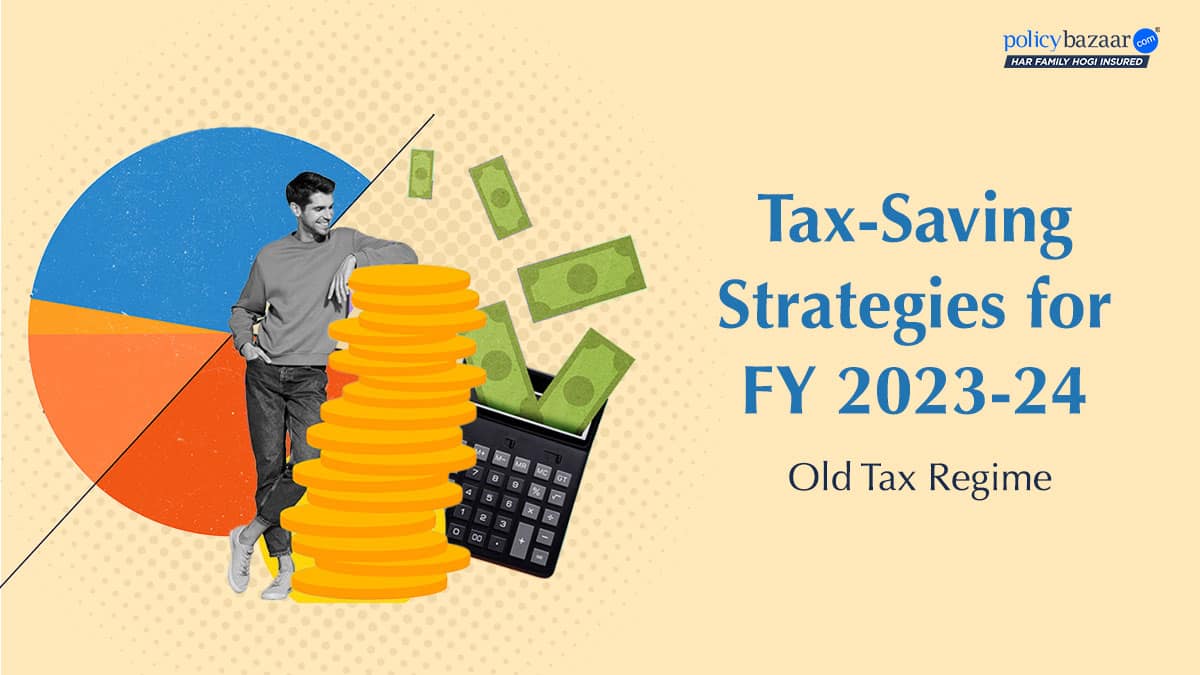1
Q3 FY24: PB Fintech posts strong numbers, PAT positive with 43% revenue growthSpecial Story
Our in-house experts share their top tips to save tax in FY 2023-24 under old tax regime
With just four months left for the current financial year to end, now’s the perfect time to revisit and reassess your tax-saving strategy. We reached out to our seasoned in-house experts for their best recommendations to reduce tax liability in FY 23-24 under the old tax regime, this is what they had to say.
.png) Vivek advocates for the appeal of new-age ULIPs, he says, “These plans offer the dual benefit of insurance and investment to fulfill your long-term goals. You can create a corpus for your loved ones or life goals by investing in a wide variety of funds giving excellent market linked returns. And if something happens to you, the waiver of premium feature gets triggered, and the insurer pays all future premiums in the policy so that there is zero impact on the final goal that you were saving for. Currently, no other investment product is offering this feature.”
Vivek advocates for the appeal of new-age ULIPs, he says, “These plans offer the dual benefit of insurance and investment to fulfill your long-term goals. You can create a corpus for your loved ones or life goals by investing in a wide variety of funds giving excellent market linked returns. And if something happens to you, the waiver of premium feature gets triggered, and the insurer pays all future premiums in the policy so that there is zero impact on the final goal that you were saving for. Currently, no other investment product is offering this feature.”
He adds, “You can claim tax benefit on your investments up to Rs. 1.5 lacs under Section 80C & zero tax on maturity value unlike the 10% LTCG on mutual funds under Section 10 (10D). This benefit is only applicable if annual investment in ULIP policy is less than 2.5 lacs, Applicable for all policies bought after 1st February 2021.”
 Siddharth mentioned that the annual medical inflation rate currently stands at 14% in India. He says, “It goes without saying that having health insurance in place is a must to combat the rising medical costs. None of us plan to fall sick or have a medical emergency but there is a possibility of needing medical care at some point of time in your life. When that happens, your savings might drain out because of the expensive hospital bill. Therefore, you should definitely invest in health insurance to save yourself from any financial crisis during a health emergency.”
Siddharth mentioned that the annual medical inflation rate currently stands at 14% in India. He says, “It goes without saying that having health insurance in place is a must to combat the rising medical costs. None of us plan to fall sick or have a medical emergency but there is a possibility of needing medical care at some point of time in your life. When that happens, your savings might drain out because of the expensive hospital bill. Therefore, you should definitely invest in health insurance to save yourself from any financial crisis during a health emergency.”
Talking about its tax benefits, he says, “Premium paid on health insurance is tax-deductible under Section 80D of the Income Tax Act. The sum claimed on tax deduction depends on the people insured under your policy - yourself, spouse, children, or parents. You can save up to R.s 25,000 on the premium paid for self, spouse, and children and can save additional Rs. 25,000 if your parents are also having health insurance. However, if your parents are above the age of 60 years, you can avail tax exemption of Rs. 50,000.”
 According to Sameep, “If you want fixed and low-risk returns, you should definitely consider investing in a guaranteed return plan. These products are much safer, have a higher interest amount and returns are tax-free. In these plans, you need to invest a certain amount upfront for a specific period and the returns are guaranteed on the investment. For a 30-year income plan, these returns can be as high as 7.1%. The returns on investment are completely tax-free (if the annual premium is less than Rs. 5 lacs, under Section 80C) which is the reason that it’s a popular investment for individuals in the age group of 28-35 years. The customers even get a life cover equal to 10 times the annual premium.”
According to Sameep, “If you want fixed and low-risk returns, you should definitely consider investing in a guaranteed return plan. These products are much safer, have a higher interest amount and returns are tax-free. In these plans, you need to invest a certain amount upfront for a specific period and the returns are guaranteed on the investment. For a 30-year income plan, these returns can be as high as 7.1%. The returns on investment are completely tax-free (if the annual premium is less than Rs. 5 lacs, under Section 80C) which is the reason that it’s a popular investment for individuals in the age group of 28-35 years. The customers even get a life cover equal to 10 times the annual premium.”
 Rhishabh emphasises the importance of a life insurance plan, he says “When it comes to financial planning, life insurance is the primary investment that you must make to secure the future of your loved ones in case you are not around. Life insurance is a contract between an insured person and an insurance company wherein the insurance company pays a specific sum to the insured’s family upon the policyholder’s death. This sum is paid in exchange for a specific amount of premium. This premium is paid for a specific term. As per Section 80C, you can avail tax benefits up to Rs. 1.5 lacs against the premium paid towards a life insurance plan.”
Rhishabh emphasises the importance of a life insurance plan, he says “When it comes to financial planning, life insurance is the primary investment that you must make to secure the future of your loved ones in case you are not around. Life insurance is a contract between an insured person and an insurance company wherein the insurance company pays a specific sum to the insured’s family upon the policyholder’s death. This sum is paid in exchange for a specific amount of premium. This premium is paid for a specific term. As per Section 80C, you can avail tax benefits up to Rs. 1.5 lacs against the premium paid towards a life insurance plan.”
Head to https://www.policybazaar.com/ right away to get started with your investments.









